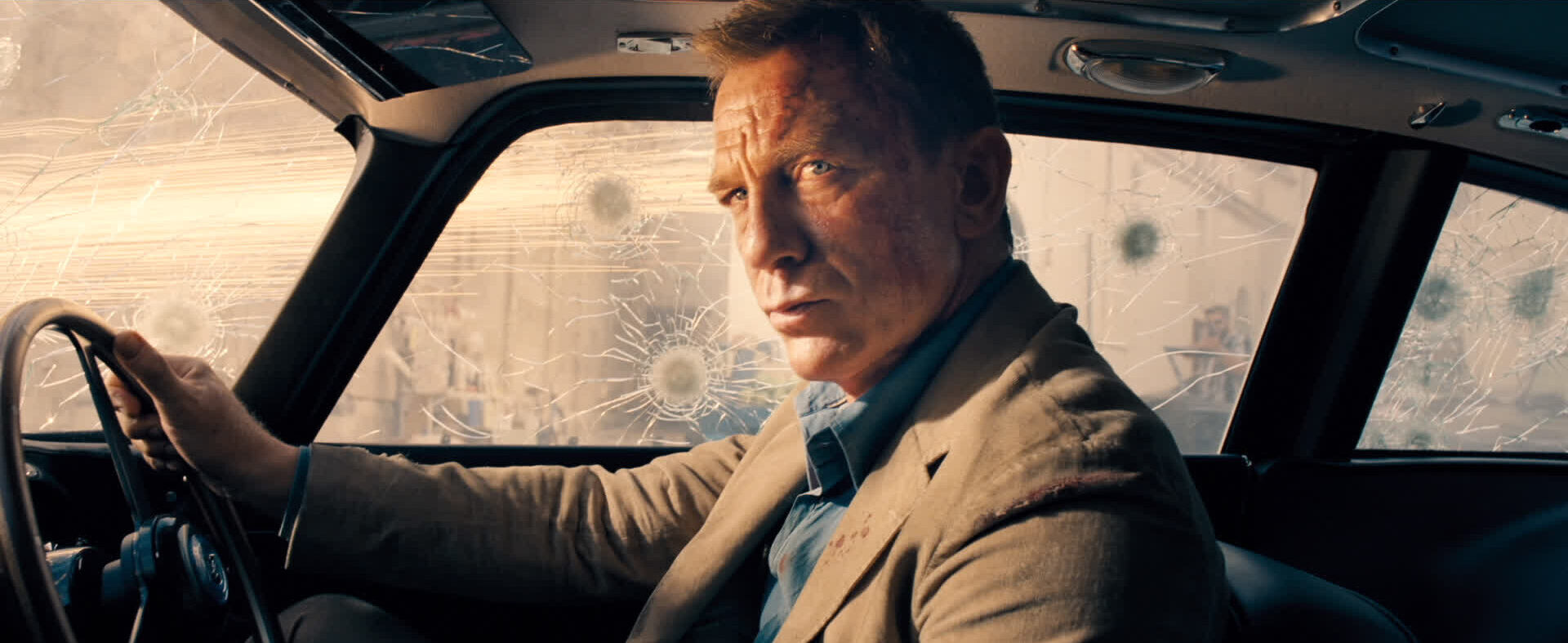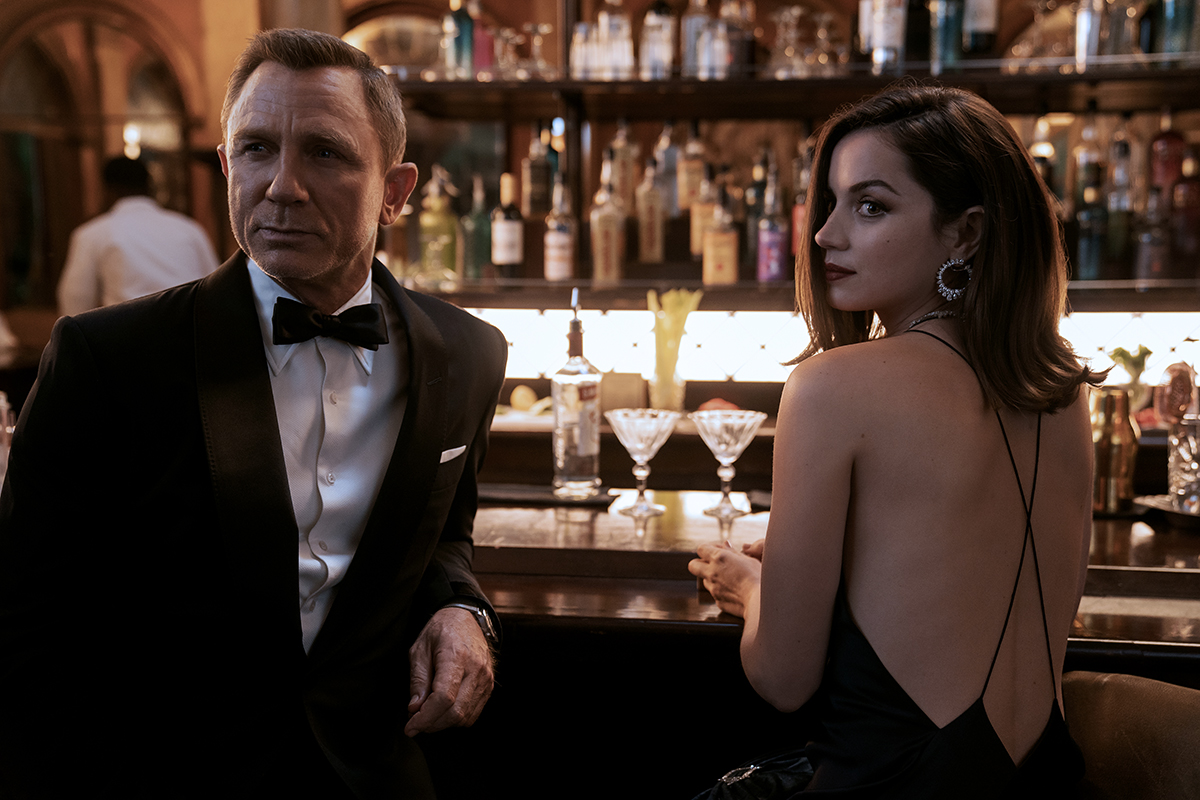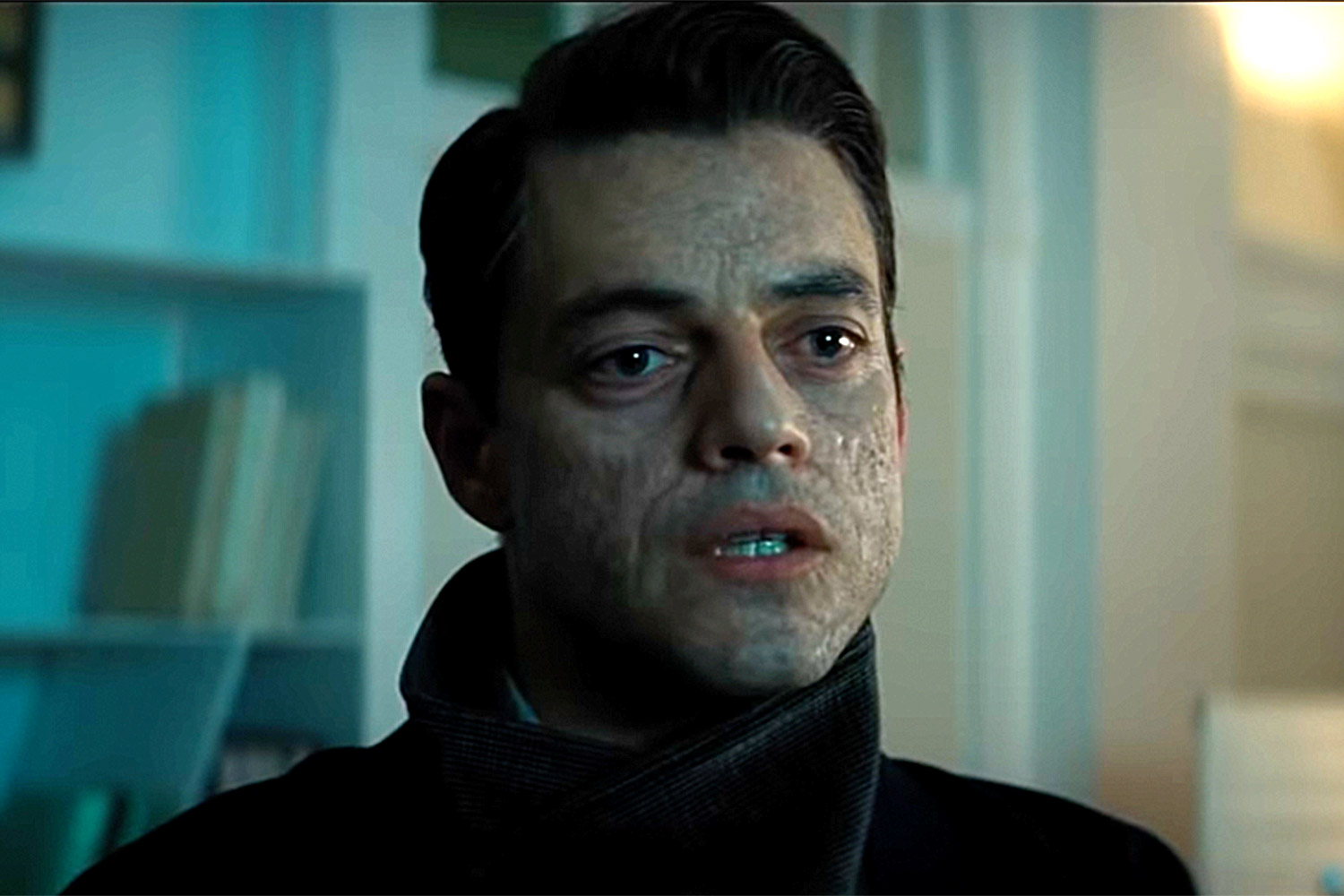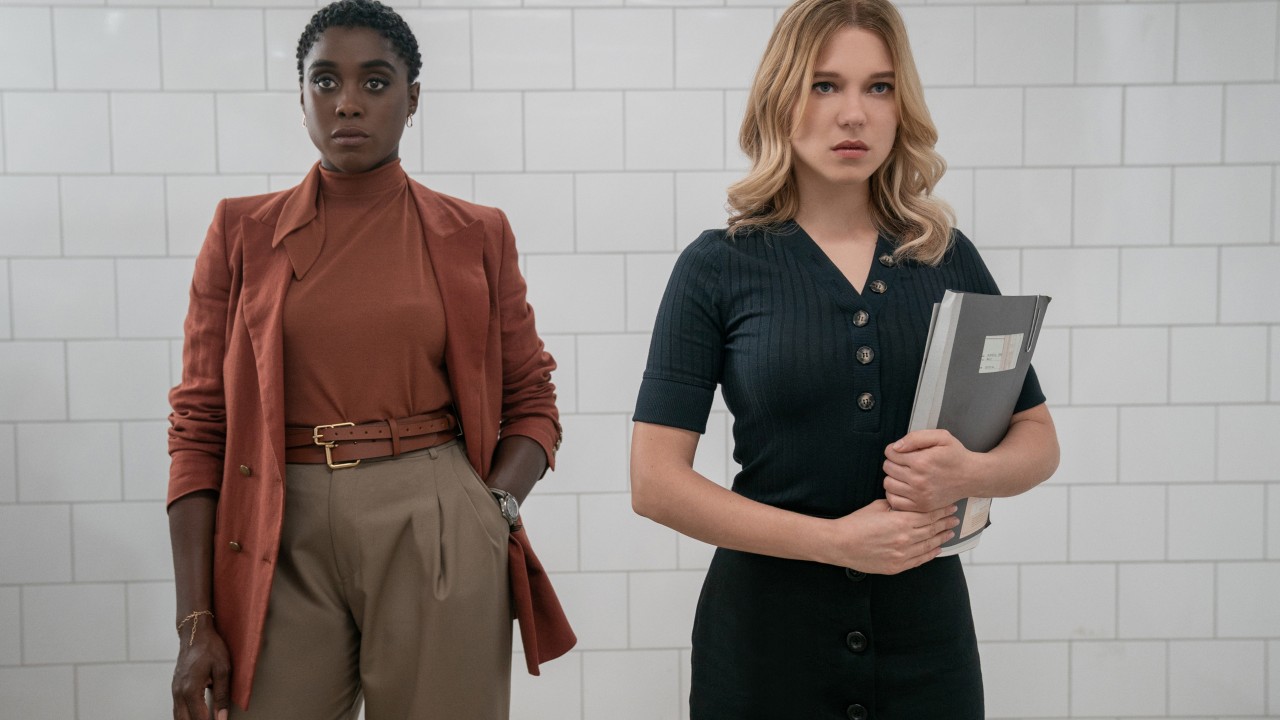Some of my earliest memories of watching movies with my extended family involve James Bond. Yes, looking back at the Connery or Brosnan James Bond today sheds a more problematic light on the spy films based on Ian Fleming’s novels. But, for an immigrant family fresh from China, Bond’s movies transcended language barriers. You didn’t need to know perfect English to understand that he was a spy with cool gadgets, he drank martinis, he was good with the ladies, and he could kick serious ass. When Daniel Craig came on the scene as this generation’s James Bond in Casino Royale, I was excited to have a new Bond that I could call my own (being probably way too young to have watched the earlier 007 flicks). And, as it stands after No Time to Die, Casino Royale is still Craig’s best performance as Bond.
Much of what was fantastic about his first film is what is missing in No Time to Die. There is no quippy banter, the stakes were relatively low (by spy standards), he visits lavish, splashy places, all while only showing a glimpse at the man beneath the glossy veneer of Bond, James Bond, 007. But isn’t that a good thing? Throughout his run as Bond, Craig’s James has shown some actual growth. While previous version films were barely connected, Craig’s series is linked one with another like a daisy chain. It rewards those who are fans of Craig’s Bond.

Does Bond need to evolve?
However, my question is, are there many diehard Bond fans these days? Sure, I love the series and it holds serious nostalgia for me and Daniel Craig is enjoyable as an actor, but after witnessing his performance in Knives Out, I can’t help but be glad he’s finally gotten to shed the skin of James and move on to better and bigger things. Between Casino Royale and No Time to Die lies a series of rather forgettable films. Skyfall was about James’ family… I think. I still don’t know what Quantum of Solace was about. Spectre introduced Léa Seydoux and I think that’s the biggest takeaway and the only one worth remembering. They delved deeper into Bond’s psyche, but they missed the essential point of the allure of Bond.
The fun of films like Die Another Day and Tomorrow Never Dies and Goldeneye and Octopussy is the spectacle of the movie. James is our cool point of view character that we get to slip into, but he is merely a vessel. The success of Bond relies purely on the actor’s magnetism, charisma, and capability.
When you tear those walls down, yes, you definitely get a more flawed and dimensional look at the character, but when you get lost in trying to add those complexities and you take away what is so enjoyable about the series, it falls flat. There’s never been a perfect balance of the two in these films. The sad thing is, there are a ton of exciting and heart-pounding moments within No Time to Die. The car chases, brawls, and espionage of it all are still so fun. It’s absolutely amazing to watch Daniel Craig ride a motorcycle up a building like a ramp, watch him casually take down an army of thugs while still taking shots with Ana de Armas, watch him stalk killers in the forest like a literal panther, these are the things that make Bond stand out.

Love without sparks
Aside from a glimpse into the spy world through Marvel’s SHIELD organization, slick spy movies like Bond don’t really exist anymore. And honestly, don’t fix what isn’t broken. The problem when it comes to No Time to Die is definitely not the action. One thing I love so much about Craig’s Bond is how gritty his fighting can be and how Craig seems to throw himself into the action. You can sense urgency with him and desperation and also viciousness. The problem comes when we start bringing in the elements from the previous films. I’ll say right now that as much as I adore Léa Seydoux, her character Madeleine Swann, is still just a romantic interest and Seydoux has no chemistry with her co-star. The fact that Craig is 16 years her senior doesn’t help things.
The joy of Casino Royale was getting to see a semi-committed Bond who was able to banter and bicker and love Eva Green’s Vesper Lynd. She’s such a significant character within Bond’s story that even No Time to Die mentions her again, multiple movies following her death. Being reminded of Green and Craig’s electric chemistry only serves as a stark contrast to Seydoux and Craig’s lack thereof, which is upsetting because it seems like they’ve thrown all of James’ romantic eggs into Madeleine’s basket. Not to mention the fact that Vesper is the catalyst to much of James’ story throughout his films. Her death leads him to Mr. White which leads him to Spectre and also Madeleine. After so many years, it is still difficult for James to speak to Madeleine about Vesper.
Without spoilers, Madeleine’s character actually has a really interesting plot in this film, but it all ends up serving James. Her connection with Rami Malek’s Lyutsifer Safin is definitely one of the more compelling relationships in the film. Safin and Madeleine have a twisted relationship, but it’s one that is at the very least interesting. Fatalistic, creepy, and toxic as hell, Malek and Seydoux at least have sparks that make their scenes intriguing even without much dialogue. But that relationship is there to serve the romantic one between James and Madeleine. With Bond, Safin is wooden and sometimes even unintelligible. Maybe my hearing is going or maybe it’s the prosthetics on Malek’s face, but even in a Dolby theater, I had trouble understanding Safin in most of his conversations with James. (Honestly, subtitles need to be standardized in America.)

It’s ultimately a disappointment because we know that Rami Malek can deliver a standout performance, like all of Craig’s Bond villain actors of the past, but somehow when put into the Bond template, they all fall flat. Like Batman, Bond villains have a natural affinity to extravagance and are memorable. I basically forgot Christoph Waltz and Javier Bardem were in this series. Again, aside from Mads Mikkelsen’s Le Chiffre who cried blood and nearly pulverized Bond’s family jewels, it’s hard to pluck out significant moments in between.
New faces, old faces
On the note of chemistry, Craig’s chemistry with both Lashana Lynch’s new 00 agent named Nomi has that same crackling energy that we felt with Green. The two keep it mainly professional, which is great, and the two characters have an added layer of insecurity with Nomi being Bond’s replacement and Bond having to accept that fact. His brief interlude with Ana de Armas’ Paloma is also enjoyable, though Paloma’s character type falls right into Latina stereotypes of being oversexualized and ditzy that even de Armas’ effervescent performance can’t hide.
But, at the end of the day, I appreciate the effort to evolve Bond as a character, even if I partly view it as a failure. Giving this killing machine a heart feels like a natural evolution, but it loses some of its flair. Instead of tying Bond to a romantic relationship, I would have much rather seen the series focus more on his friendship and bromance with Jeffrey Wright’s Felix Leiter. Felix, who has been there since day one, has slowly turned from ally, to friend, to literal brother. As a CIA agent, they’re naturally in a bit of competition, but that’s never stopped Felix and James from being friendly and even helping each other out, much to the chagrin of their superiors.
Similarly, James’ relationships with Ralph Fiennes’ M, Ben Wishaw’s Q, and Naomie Harris’ Moneypenney are places where the story could have developed in troves. You want to make big changes to Bond’s world? Why not do it with people that we’ve seen countless times? Pull these characters out of the sidelines and push them into the spotlight. If and when we get Lynch’s version of 007, this is something that they could incorporate without the bindings of Bond. I’m more intrigued to see Lynch’s transformation from a rule-following Nomi to a rebellious secret agent with a license to kill.

Despite all my complaints and nitpicks, those final scenes that we get with Craig are meaningful. It’s not easy playing a character as cool as Bond, and I say that with no sarcasm. His stoicism and charm are armor. Craig has managed to show us the Bond beneath that armor, for better or for worse. We’ve watched him driven by revenge, search for peace, find love beyond the superficial. Ultimately as a finale, I enjoy the idea of No Time to Die even if its execution is flawed (hampered also by its near three-hour runtime). The film is very clear about making this the end for James Bond, or at least Craig’s version. Absolutely no door is left open for Craig’s return, but between the start at Casino Royale and through to No Time to Die, there is a finality and harmony in Bond’s story that we haven’t really had before and that is what makes this version of Bond a game-changer.
No Time To Die premieres October 8th, 2021